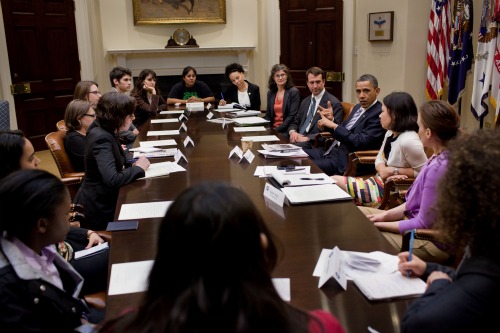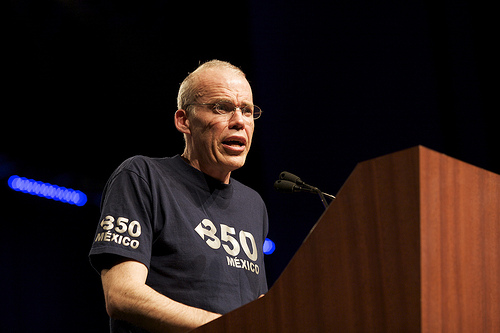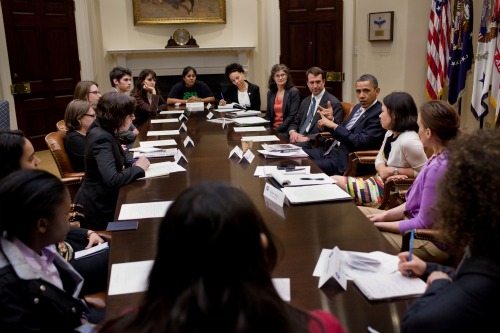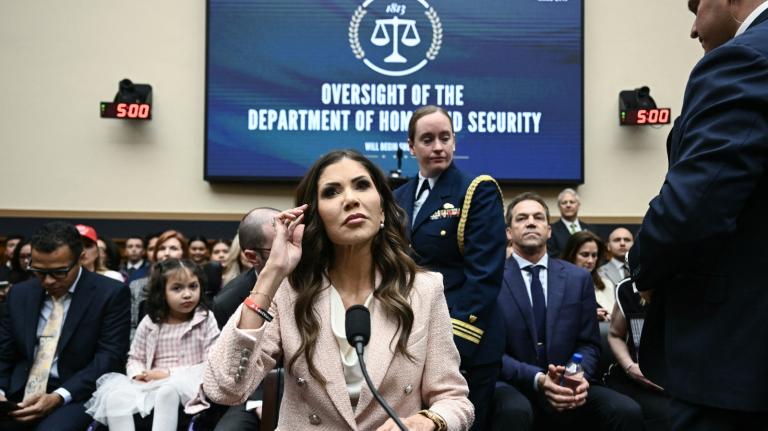 President Obama meets with Energy Action Coalition leaders in the White House. Photo: The White HouseYouth climate leaders in town for the Power Shift conference got some powerful evidence that their public frustration with President Obama is getting noticed in the Oval Office: Halfway through a meeting at the White House between leaders of the youth Energy Action Coalition and senior White House staff, the president walked into the room, sat down, and engaged in a substantive discussion and debate with the young leaders.
President Obama meets with Energy Action Coalition leaders in the White House. Photo: The White HouseYouth climate leaders in town for the Power Shift conference got some powerful evidence that their public frustration with President Obama is getting noticed in the Oval Office: Halfway through a meeting at the White House between leaders of the youth Energy Action Coalition and senior White House staff, the president walked into the room, sat down, and engaged in a substantive discussion and debate with the young leaders.
“I hear you’re angry with me,” Obama reportedly said as he walked into the Roosevelt Room, according to participants.
Angry indeed. Participants told the president they were frustrated that his administration continued to issue offshore oil-drilling leases in the Gulf of Mexico, had authorized a massive expansion of coal mining, and continued to enthusiastically support natural gas and nuclear development despite the growing evidence of its dangers.
Nonetheless, the Power Shifters found common ground with Obama, whose senior advisers responded to pressure from environmental groups by saying they would recommend vetoing a House bill that included major rollbacks to Clean Air Act protections.
“We are thankful he fought to save the Clean Air Act,” said Energy Action Coalition Executive Director (and former Obama White House staffer) Courtney Hight. “That’s the man we elected, and we need him to stand strong and stand up to big polluters and safeguard America’s public health.”
What’s most instructive about the meeting is that it happened at all. Green group CEOs haven’t had a collective substantive sit-down meeting with President Obama in approximately the last year, according to my sources (though, contrary to rumor, they have had such a meeting since Obama became president). That’s despite spending tens of millions to support his election, representing more than 10 million Americans, and collectively investing more than a billion dollars collectively to pass climate legislation. So why did young people do what powerful DC enviros didn’t or couldn’t?
First off, young people have been much more blunt and vocal about how they feel betrayed by Obama’s tightening embrace of the fossil-fuel lobby, in a way that many Beltway greens haven’t. A Washington Post article published as the conference got rolling — “Youth at environment summit unhappy with Obama policies” — quoted Hight: “When I looked at that energy security speech, it seemed like something BP wrote. We want to make sure the president is seeing that we’re done with this. We need them to draw a line in the sand. We need him to stand up to the polluters.”
Them’s fighting words for a former Obama admirer and White House staffer — and not the type of language you’ve heard from leaders of most mainstream environmental groups until recently. This hard-hitting quote recognizes a fundamental, sad reality about President Obama: He pays more attention to his enemies than his friends. It’s partly because he sees civility (i.e., senators being nice to one another on Sunday morning talk shows) as one of the loftiest goals of his public life, and he wants to de-escalate the rhetorical battles even if that means sacrificing ground on important policies. More deeply, it’s due to a deeply flawed political analysis that somehow still believes concessions can win over Republicans, polluters, or other corporate nemeses, or that Americans want politicians who ape the polls rather than fight for what they believe.
Obama might have thought that it would be easier to win a contentious argument with a group of young people than tough veterans like 350’s Bill McKibben, Greenpeace’s Phil Radford, Sierra Club’s Michael Brune, or LCV’s Gene Karpinski, but I doubt his hopes for a softball meeting were realized with the whip-smart, courageous Energy Action Coalition organizers.
As Firedoglake founder Jane Hamsher pointed out at a Power Shift panel I organized, the White House has put high youth turnout at the core of Obama’s reelection strategy — which means they can’t afford to have young people angry at them for mining and drilling our future away.
But unless Obama takes action to reverse his dramatic expansion of coal mining, offshore oil drilling, and other points on the polluter agenda, this kind of blunt talk from youth will continue — as will visible protest. This morning, thousands of climate youth (and me) are rallying outside the White House to protest the administration’s fossil-fuel policies. We are being joined by AFL-CIO President Richard Trumka, representing millions of workers frustrated about Obama’s embrace of tax cuts for the rich and cuts to health care and education for everyone else (not to mention stepping on basic civil rights).
Many other members of Obama’s 2008 alliance, from minorities to women, are furious too, and are doing more and more to act on that frustration — or just checking out of presidential politics and focusing on state and local campaigns against coal plants or attacks on workers’ rights. That’s got to be a worrying dynamic for President Obama as he faces a key upcoming test: whether he will surrender rollbacks to environmental laws, civil rights, and basic rights as the price of getting Republicans to raise the debt limit — or whether he will continue to call them out for their assault on our air, our water, our rights, our jobs, and our planet.




